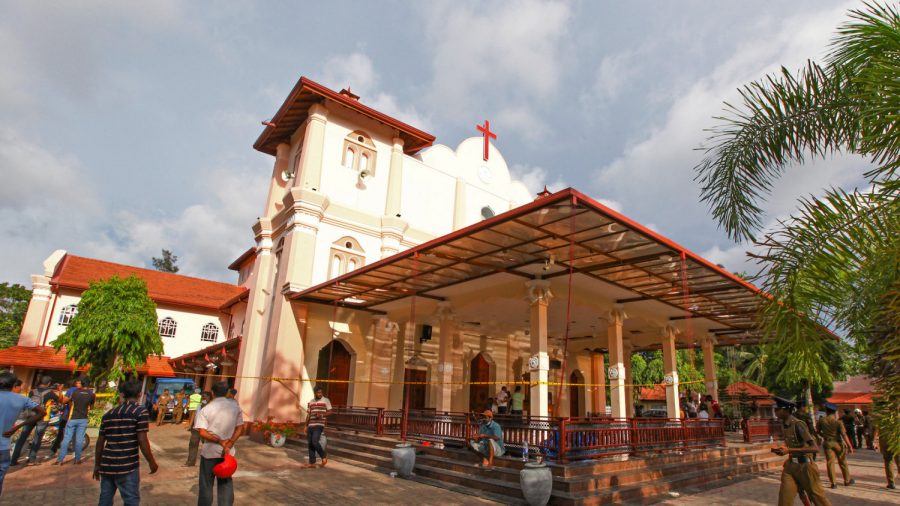One of the suicide bombers who blew themselves up in churches and hotels in Sri Lanka on Easter Sunday has been identified.
The first identification came during a hearing in Colombo on Monday, the day after the attacks, as Wellampitaya police officers presented evidence they’ve gathered so far.
The bomber was named Insan Setiawan, reported News First. The Sri Lankan outlet also named him later in the article as Insan Seelawan.
Police added that the man’s wife and one of his brothers died in explosions that took place. His wife detonated a bomb when security forces raided his house; her two children were in the house at the time, but survived the blast.

The man’s brother also set off a bomb when security forces tried to arrest him. Three police officers were killed in the blast along with the brother.
Police arrested a person believed to be Setiawan’s father as well as a minor and a number of women, and a suspect who was filming the police investigation into Setiawan’s residence. Overall, 24 people had been arrested across the country as the death toll climbed to 290, with at least 500 injured.
Bombs went off at four churches and four hotels, including the luxury Shangri-La hotel in Colombo.
The government had previously said that it wasn’t going to disclose the identity of any of the suspects.

According to the Telegraph, Setiawan was one of two bombers who set off explosions at the hotel. Security forces raided a copper factory he owned and arrested nine suspects there.
Authorities said they believe the National Thowheed Jamath (NTJ) group was behind the attacks but Rajitha Senaratne, a cabinet spokesman, said that it was a “small organization” that could not have carried out the attacks without “an international network.”
St. Anthony’s Shrine, a Catholic church in Kochcikade and St. Sebastian’s Church in Negombo, both north of the city, and Zion Church, in Batticaloa on the eastern edge of the country, were also hit by the terrorists.
In addition to the Shangri-La, the Kingsbury and the Cinnamon Grand Colombo were hit. A hotel in front of the Dehiwala Zoo was also hit by the bombers.

U.S. President Donald Trump said on Twitter on Monday that he’d spoken to Wickremesinghe “to inform him that the United States stands by him and his country in the fight against terrorism.”
“Also expressed condolences on behalf of myself and the People of the United States!” he added.
Spoke to Prime Minister Ranil Wickremesinghe of Sri Lanka this morning to inform him that the United States stands by him and his country in the fight against terrorism. Also expressed condolences on behalf of myself and the People of the United States!
— Donald J. Trump (@realDonaldTrump) April 22, 2019
Officials received warning about planned terror attacks on Easter but did little to prepare, prompting apologies after the bombs went off on the religious day.
Harsha de Silva, the Sri Lankan Minister of Economic Reforms and Public Distribution, told CNN that both U.S. and Indian intelligence agencies had warned the government of imminent attacks.
De Silva said the Sri Lankan government “did receive information from overseas that something terrible was to happen” but the prime minister “was kept in the dark.”

“For now the priority is to apprehend the attackers,” he added.
Rohan Gunaratna, a Singapore-based security expert, told the Mirror that NTJ is a branch of the ISIS terror group, known for fomenting hardline Islamic law and terror attacks in the Middle East. According to Gunaratna, NTJ members traveled to Syria and Iraq to join ISIS.
Alto Labetubun, an anti-terrorism expert, told Reuters that the bombings bore the hallmarks of terrorist groups such as ISIS and al-Qaeda, citing the level of sophistication of the attacks.
“These synchronized attacks are out of the ordinary for Sri Lanka. Compared with similar attacks in the Middle East and Southeast Asia, it has the DNA of attacks carried out by Islamic State [ISIS] and al-Qaeda,” he said.

